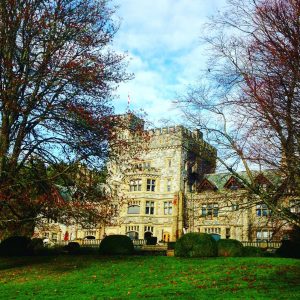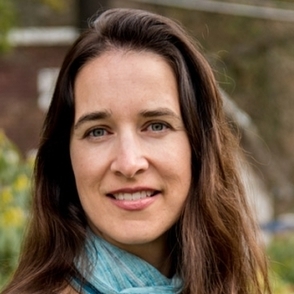Academia is full of acronyms, as we’re sure you all know, and you’re probably wondering what the RRU MALAT program is all about so let us introduce you to the Royal Roads University Master of Arts in Learning and Technology (RRU MALAT) program. Over the past 2 years, this program has undergone a significant redesign including extensive consultations with various stakeholder groups. A core value and key principal of the program is openness, but not just in the form of open textbooks, but by applying the principles of networked learning, open pedagogy and digital mindset, with students creating and evaluating multiple digital learning environments.
 As a leader and advocate for open education, BCcampus is excited to see programs that embrace open practices and embody an open philosophy, such as the RRU MALAT program.
As a leader and advocate for open education, BCcampus is excited to see programs that embrace open practices and embody an open philosophy, such as the RRU MALAT program.
While the benefits of open textbooks and OER are compelling, little is known about programs that are designed with openness as a core value. What does it mean to embrace open practices and embody an open philosophy at the program and course level within a Master’s program? What are faculty experiences with such an approach? How can the student experience be optimized? In what ways does openness support a diverse student body? What tensions arise and what supports are required to facilitate the transition to an MA degree that not only uses open textbooks but is defined by openness?
 To find out more about this fascinating program and of course, its connection to open education, we were eager to catch up with Elizabeth Childs, Associate Professor and Program Head of the MALAT program in the School of Education and Technology at Royal Roads University to ask her a few questions. Here’s what she had to say:
To find out more about this fascinating program and of course, its connection to open education, we were eager to catch up with Elizabeth Childs, Associate Professor and Program Head of the MALAT program in the School of Education and Technology at Royal Roads University to ask her a few questions. Here’s what she had to say:
Can you describe how the program is changing as a result of openness as a core value?
We began by looking at the five Rs of openness (reuse, revise, remix, redistribute and retain) and how they might support what we were trying to achieve in the program redesign. At Royal Roads, we try to think beyond the independent, standalone courses, creating a synergy across all courses. After the 5-year program review, we were able to step back and look at the courses and the program systematically to see how they all work together and how we could design it along the continuum of openness which lead us to where the program is now. It has changed in a number of ways, such as:
- Program delivery. We will be delivering the program in WordPress, which means that the content, activities, blog posts, assignments, etc. will be open and publicly available which is a first for Royal Roads.
- Digital footprint. Students will gain and maintain their own WordPress site throughout the program, allowing them to take an active and participatory role in the wider education community. They will be cultivating their digital identity and presence as they grow to be seen as a valuable contributor in this space.
- Readings and resources. First and foremost, we aim to use open resources, journals, and peer-reviewed articles.
- Personalization of the learning experience. There are a variety of changes in this realm, making the program customizable by the students. The learner will create their own learning plan, drawing on content and experiences from outside of the university and bring it back to the program – enhancing the overall learning outcome.
- Networks. The strength of the cohort model is great, but in today’s connected world, a cohort is small. We need to focus on the network that students can build, cultivate and contribute to throughout the program to cross that traditional boundary, taking this network with them when they graduate. Lifelong learning includes a network to learn from and collaborate with.
Why is it important to the program to include open as a core value?
It might sound silly, but at a base level, openness is about sharing, kindness, generosity and optimism. As people who work in designing learning environments and experiences, this is inherent in all that we do – design things to then make those things better.
The RRU Teaching and Learning Model speaks to authentic experiential and inquiry-based learning, outcomes-based learning, enhanced learning through technology so when we lined these characteristics up with principles of openness and open pedagogy broadly defined there was a direct dovetail.
During the program redesign, Royal Roads put design documents on Moodle and pushed them out via social media for others to weigh in, offer value, feedback, etc. Clint Lalonde, Manager, Educational Technologies, BCcampus took this opportunity to contribute and collaborate as an RRU MALAT Alumni, but also as a lifelong learner in educational technology.
Notable quote:
“The RRU MALAT program will help develop educators who not only understand that learning in an open, networked world is different, but that will also help them maximize the potential of open, networked learning. This is an education program that, first and foremost, fundamentally acknowledges the unique learning affordances of the Internet.” – Clint Lalonde, Manager, Educational Technologies, BCcampus
Webinar series:
The Jan 31st webinar recording is no longer available: Open Education Stories from Across B.C
This webinar focused on open education stories from across British Columbia, and explored a case study on the makings of the RRU MALAT program.
